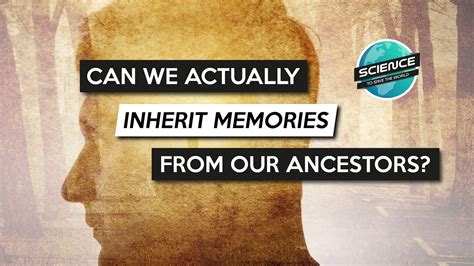The question of whether we can inherit memories from our ancestors has long fascinated scientists and the public alike. This curiosity has only deepened with the advent of epigenetics—a field that explores how environmental factors can influence gene expression without altering the underlying DNA sequence. According to some sensationalistic interpretations, epigenetic changes might allow for the inheritance of ‘memories’ or ‘lived experiences’ across generations. But is this just a myth or a reality grounded in scientific evidence?
Skeptics highlight that conflating epigenetic changes with actual memories is not only inaccurate but also misleading. Critics argue that such interpretations resemble the discredited movement of recovered memory therapy, which posited that traumatic memories could be unconsciously repressed and later recovered through therapy. Unlike these dubious psychological claims, epigenetic research focuses on more tangible phenomena such as DNA methylation and histone modification, which can influence gene expression.
Scientific debates often hinge on the precise definitions and mechanisms involved. Some researchers assert that while environmental factors such as stress or trauma can result in epigenetic modifications in somatic (body) cells, these changes would not necessarily affect gametes (sperm or eggs) and thus would not be passed on to future generations. Furthermore, even if such changes did occur in gametes, critics argue that these would only predispose offspring to certain behaviors or health conditions rather than transmitting specific memories or experiences.
A vocal contingent within the scientific community is skeptical of claims that memories, by any meaningful biological definition, can be inherited through epigenetic means. These critics argue that memories are distinct processes involving neural activity and synapse formation—far removed from the mechanisms of epigenetic modifications. They often cite the lack of conclusive empirical evidence supporting such dramatic claims, despite intriguing but ultimately inconclusive studies from the early 2000s.
On the other hand, proponents of this idea point to studies indicating that environmental exposures can cause epigenetic changes that persist for several generations. One widely referenced experiment exposed mice to a cherry-like scent paired with a mild electric shock, which taught them to associate the smell with danger. Remarkably, this learned behavior appeared to manifest in the descendants of these mice, who exhibited increased sensitivity and fear towards the cherry scent, despite never having been directly exposed to the electric shock.
However, subsequent studies and expert analyses often highlight that such findings do not translate into evidence of inherited memories. Instead, they suggest that what is being inherited might be a predisposition—a kind of epigenetic ‘bookmark’ indicating how genes might be expressed in response to certain stimuli. This distinction is crucial, as it aligns with our current understanding of genetics: epigenetics might influence the ‘recipes’ in our genetic ‘cookbook’ but does not introduce entirely new ‘recipes’.
Additionally, the concept of ‘epigenetic memory’ can be confusing due to terminological overlaps. In computer science, for instance, ‘memory’ refers to data storage, which is completely different from biological memory. Epigeneticists sometimes use the term ‘memory’ metaphorically to describe stable changes in gene expression, but this does not equate to remembering past experiences in the neurological sense. This linguistic nuance is often lost in public discourse, leading to misconceptions.
In summary, while the field of epigenetics is undeniably fascinating and holds significant implications for our understanding of inheritance, it is essential to approach sensational claims with caution. The inheritance of trauma or behavioral predispositions through epigenetic mechanisms is still a subject of rigorous scientific scrutiny. Until more concrete evidence emerges, it remains prudent to interpret these phenomena not as literal memories but as complex biological processes that affect how genes are expressed across generations. This nuanced understanding will enable us to appreciate the true potential of epigenetics without falling prey to overhyped myths.


Leave a Reply